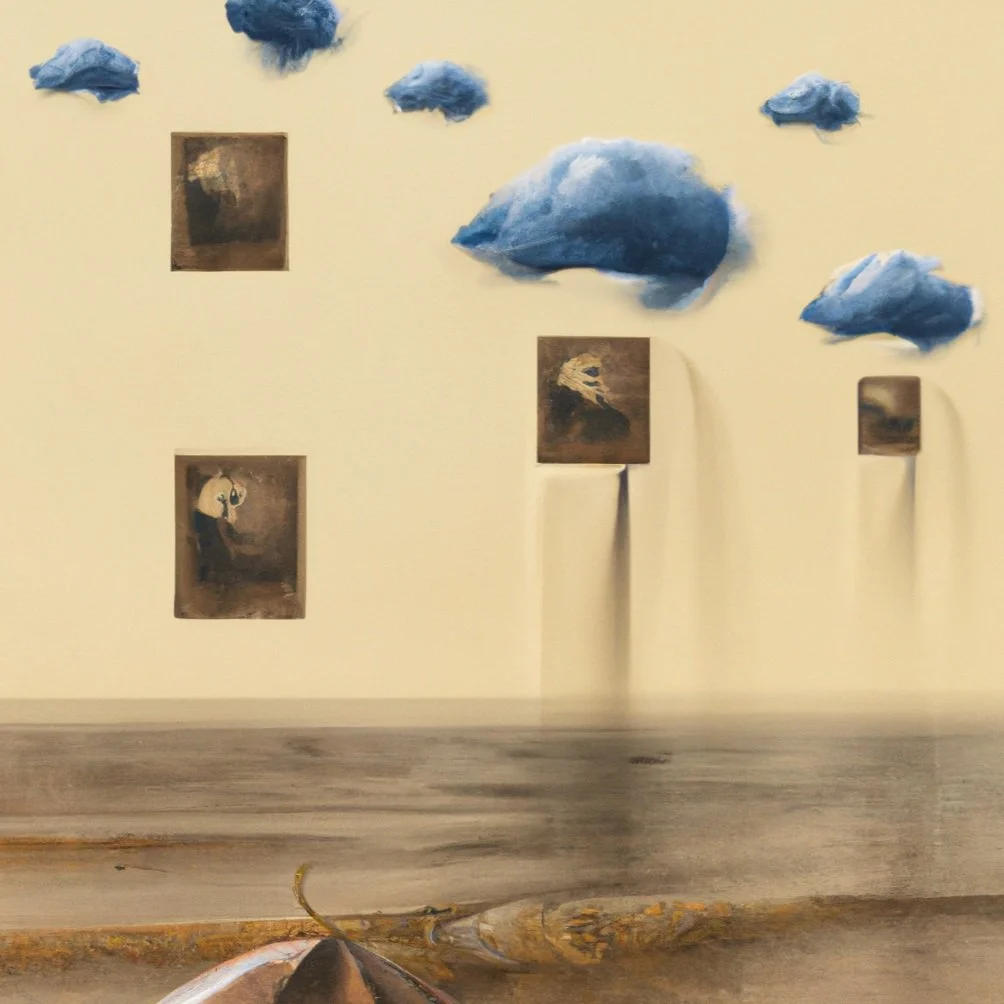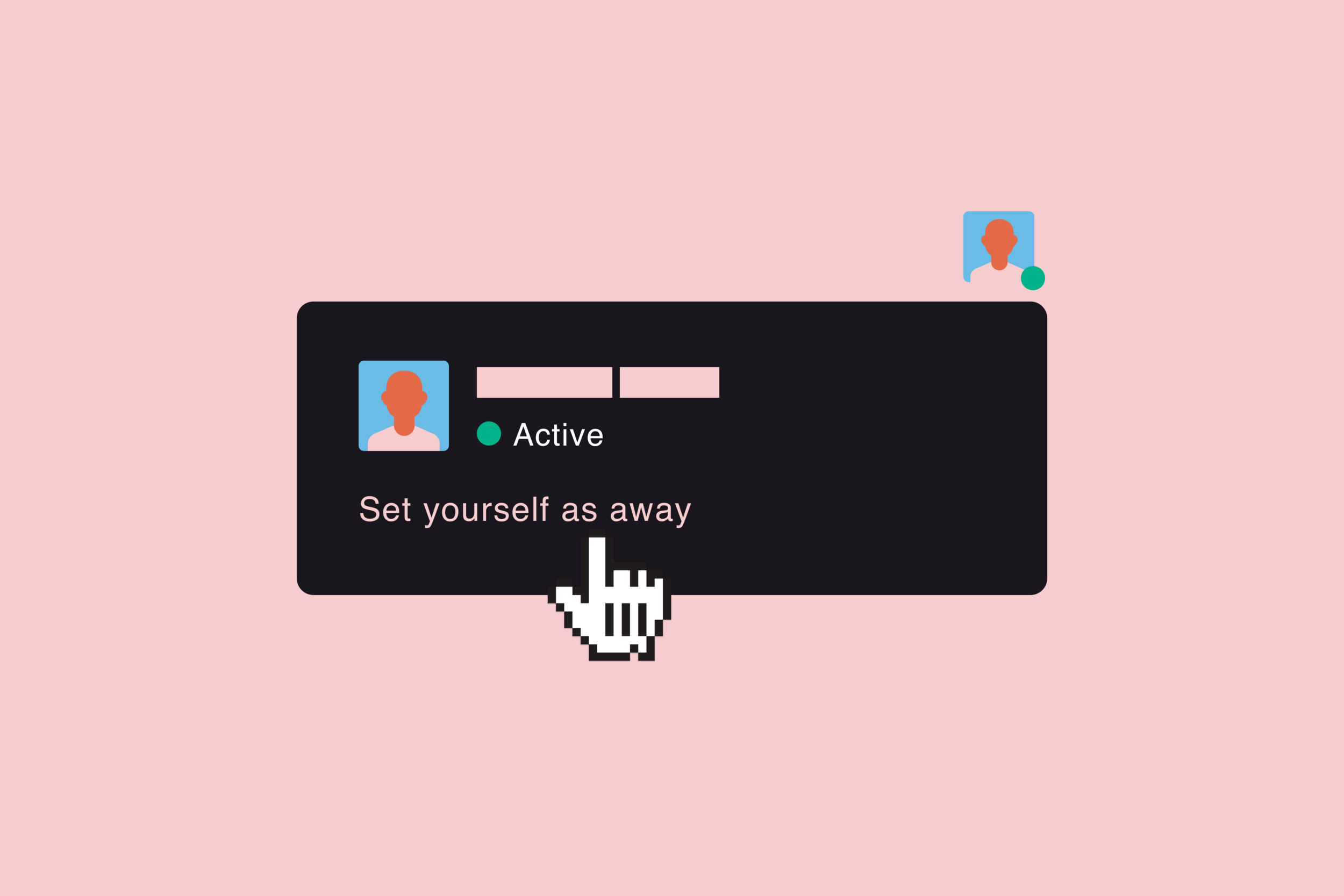#humblebrag
Have you noticed the silence? Maybe nothing has changed for you yet, but in my - these days mostly digital - circles, the chatter has quieted down substantially. It seems that, as the entirety of our interactions and social lives have now finally moved into the aether, some people have become more self-conscious of just how much they broadcast. I've found this particularly noticeable on the various Slack channels I frequent.
Confirmation of this came to me yesterday from not just one, but two conversations with fellow designers. I was chatting to a friend who I hadn't spoken to since the beginning of lockdown. After a while of talking about various aspects of office life, I ask what she'd been working on. She tells me.
"That's really cool.", I say.
"Yeah, I guess it is." she replies pensively.
"Why haven't I seen this yet?"
"I didn't want to spam everyone. There's too many cat videos and memes going around already."
Later that day, I'm in a group conversation. After some similar nudging, another friend reveals that he's been working on something really impressive. He was going to present his work to a larger audience, but only let us know about this event with the caveat of it being a 'shameful plug'.
I tried to help these friends see that showing the fruits of one's labour is not the same as blasting out memes, and that there is nothing shameful about it either. But I get it. It's hard to put yourself and your work out there. It's hard to draw the line between sharing and boasting.
Recently, the question of where to draw this line caused much anxiety for myself when I launched my newsletter Seven Things. Whenever you create something new for others, you have to eventually share it with those people. So when I set up my new project, I started out by sending it to my closest friends, family, and a few fellow creatives I trust. Curating this list of recipients and pressing Send on those emails took me a couple of hours and many iterations. Those were my closest allies, and I was really scared that I would annoy them with my naïve effort to connect with a community, but I eventually got over it. I stepped over that bar, and then moved it up, only to encounter the same feelings when crafting a similar message a few days later, this time addressed at friendly colleagues at work. And the fear of upsetting anyone was equally great when messaging a wider circle of LinkedIn contacts a few days later. Each time was terrifying. Each time, I raised the bar for myself. Very, very carefully.
Then, I received a reply that gave me more food for thought. A very experienced contact suggested for me to post my announcement on large community group chats.
I said: "So far, I've only sent personal messages to folks who I feel might be interested as I'm quite wary of coming across as too spammy... What do you think?"
He replied: "Self promotion is fine as long as you have compelling content. ... It’s all a marketing thing."
It should be said that this is someone who organises and regularly speaks at conferences, and has done so for a long time. What I learned from this very brief exchange, though, is that, first, everyone draws their line differently and, second, as long as you are genuinely trying to provide value to others rather than merely promoting yourself, nobody should get upset. This, of course, made complete sense once I reflected on how I receive similar messages from others. Some I ignored, some I sent encouraging replies to, but never would it occur to me to brandish someone for putting themselves out there with a project they are excited about. Who would do that? Needless to say that any and all other replies I received to my announcements so far were friendly, encouraging, and even grateful for doing just that.
Now, value is one thing, but you can still share something potentially valuable in a boastful manner. This made me think of some other factors that are important to get right, characteristics to convey. And these, to me, are authenticity and humility.
When I think about the negative examples of self-promoters, the wafflers and spammers, I find that they sometimes do still share a message with potential, but that gets lost when they try too hard to be seen as thought leaders (rather than themselves) and over-index on confidence. And I've been there - without a doubt, will get there again. As I said, it's a tricky balance.
Years of being plagued by the various types of imposter syndrome that are so common amongst creatives, I finally - sometimes - manage to jump over my shadow and force myself to be confident in my own experience and abilities. It took a while to get there, so it hurt when I was told that I overdid it.
A few months back, I went for dinner with a friend and fell into that trap. I told a work-related story, padded my own shoulder too much. I was boasting. And, being the best kind of friend one can have, my buddy called me out on it. I was shocked and very upset by the mismatch between my general self-image, and my demeanour in that situation. It stuck with me, though, and I hope I've been doing better since.
This sort of situation is extremely unpleasant. But we have to make mistakes, learn, and move on. However, the solution can't be to err on the side of silent and humble invisibility. If everyone did that, they would deprive those around them of the value they can add, of the thoughts their creativity will spark in others, of the discourse that can emerge from disagreeing viewpoints. It would be a very sad and boring world.
Fortunately, there are a few things we can try and do to still contribute to the conversation while reducing the chances of coming across in ways we don't want to. Here are my humble suggestions:
Make sure that confidence is backed up with knowledge
Be ourselves. (I, for one, have noticed that since stopping to try to write like my image of a 'thought leader', I've been getting many more emails and comments from readers sharing their thoughts, agreement, and gratitude. People notice.)
Be open-minded and caveat opinions with being just that (please consider all of my writing as such)
Invite critical feedback from those you trust. (I gave my friend an Austrian flag to wave every time I'm being too blunt, for example - a problem my fellow Austrians residing in the UK will no doubt be familiar with.)
Be a better listener and help others to exist loudly.
Yes, there are many boasters and wafflers. We may turn into them ourselves from time to time. But there are also too many good, talented, clever, and lovely people who are too afraid to share their awesomeness. So I want to extend an invitation to you. Send me one thing you're proud of and I will add it to a new section in my newsletter Seven Things - what's your thing?
Thanks to Steph without whom I wouldn't have considered these thoughts worthy of being propagated. Also thanks to Hamza, Jess, and Phil.

























